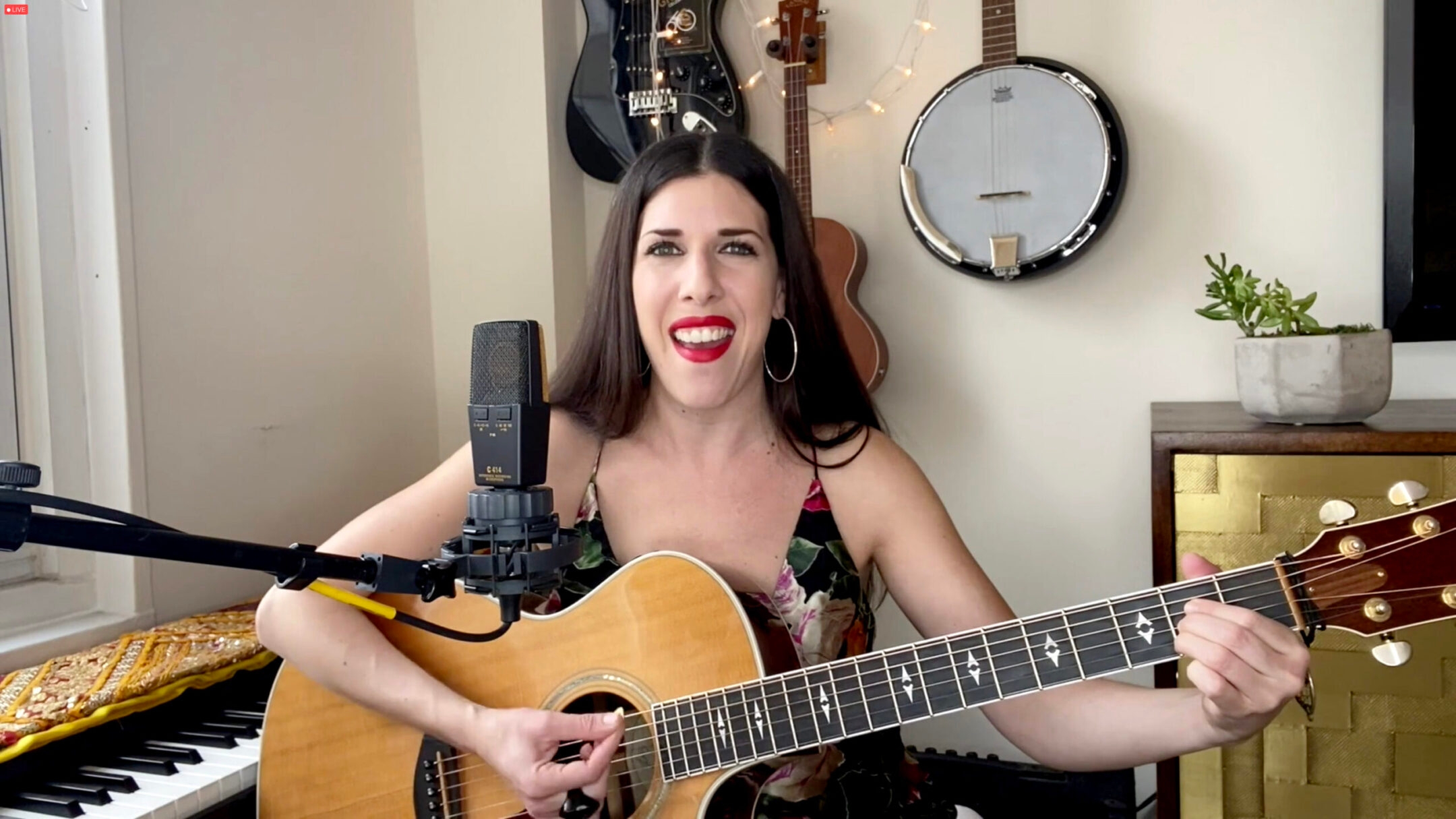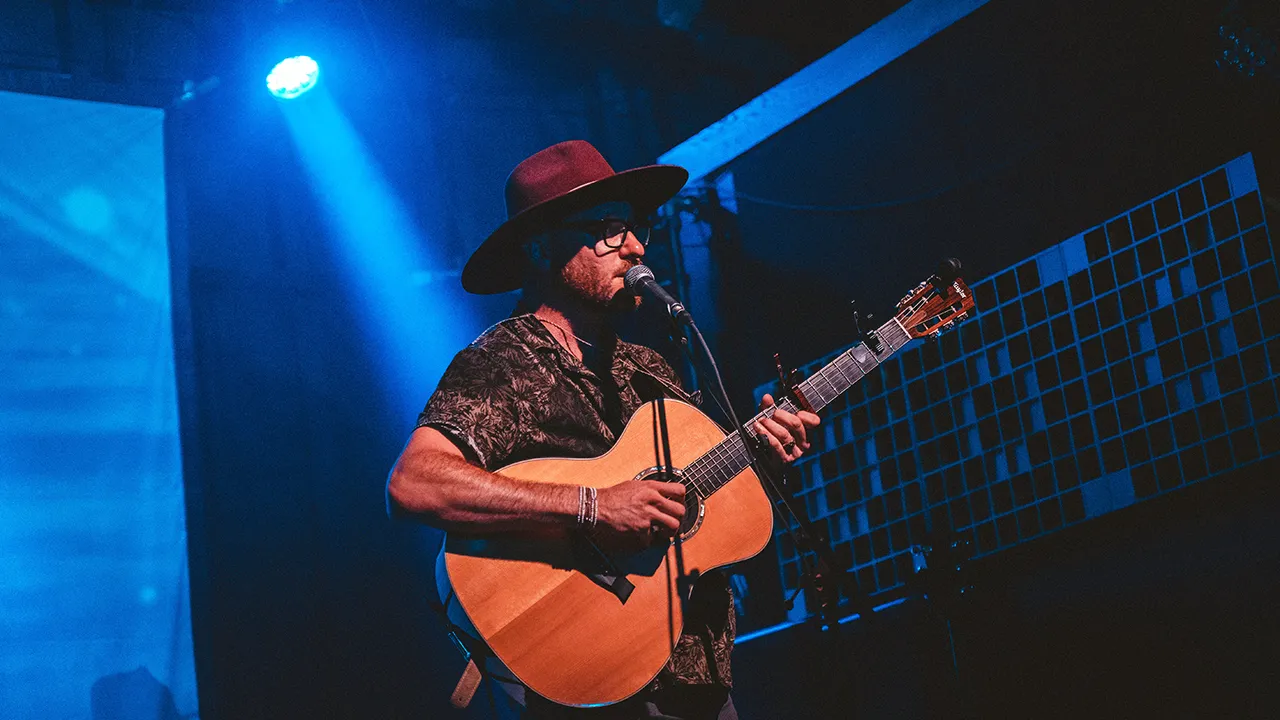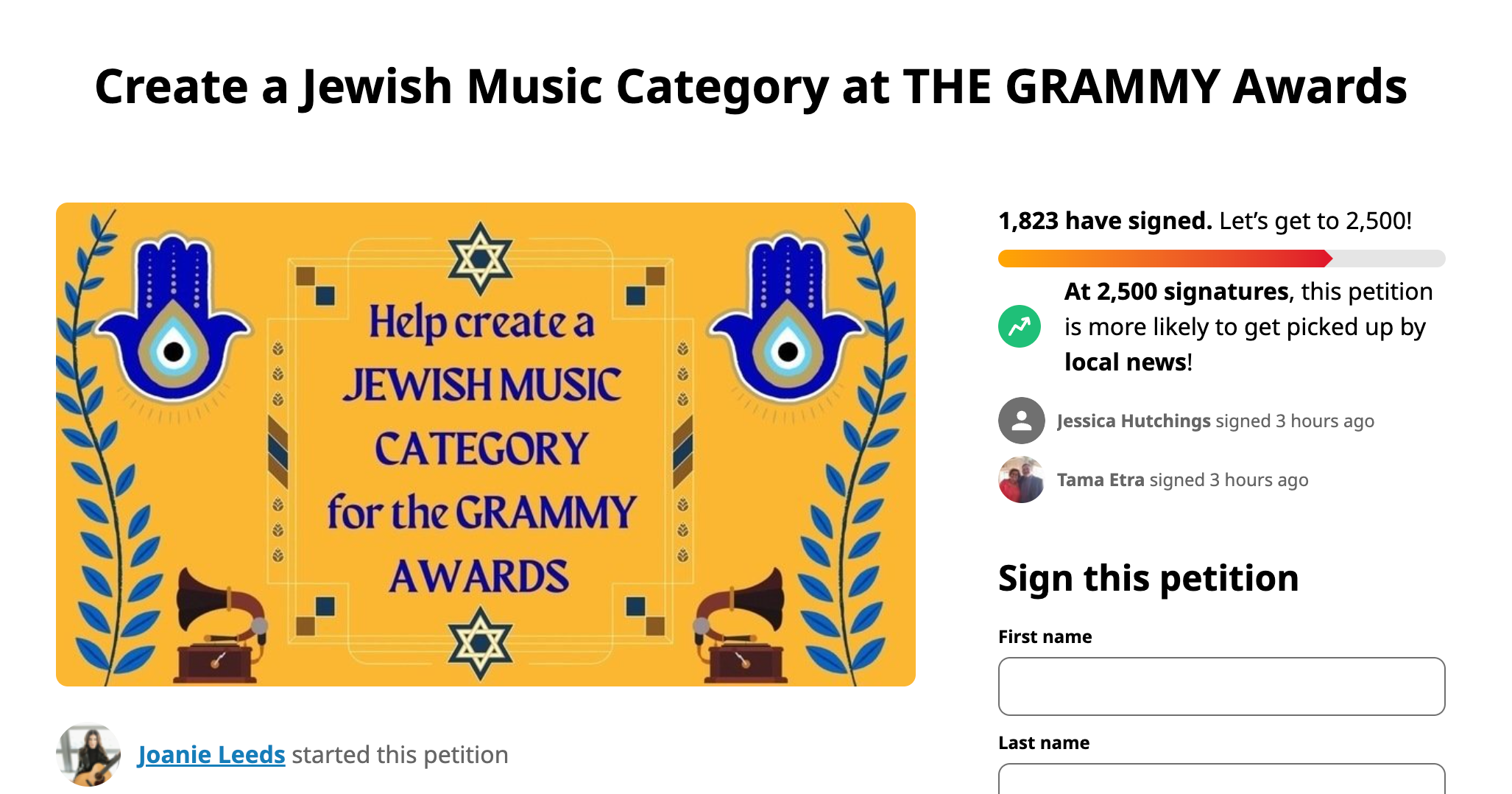There’s a Grammy for Christian music. These musicians want Jewish music to get one, too.
‘We get lost, or are ineligible, in existing categories,’ said Sarah Aroeste, who performs in Ladino.

Joanie Leeds performs from her home in New York City for Women in the Mix during the 63rd Annual Grammy Awards, March 8, 2021. (Jamie McCarthy/Getty Images for The Recording Academy)
(J. The Jewish News of Northern California via JTA) — There is a Grammy Award for just about every kind of music — from pop to metal to New Age to Contemporary Christian — but there’s no Jewish category. Two Jewish musician friends hope to change that.
Joanie Leeds, a children’s musician and Grammy winner in New York City, and Mikey Pauker, a self-described “devotional rock” artist from California, are working on a formal proposal to add “best Jewish music album” to the list of Grammys awarded each year. They plan to submit their proposal to the Recording Academy, the body that governs the Grammys, by March 1.
In the past, albums of what is traditionally considered to be Jewish music have been nominated in a variety of categories, including best contemporary world music. The Klezmatics’ “Wonder Wheel” album won in that category in 2006, and some referred to the award as “the first Jewish Grammy.”
But musicians who produce albums of Jewish music often find themselves caught between categories, Leeds said. The global category is not a fit for American musicians, and categories for religious music, even if expanded, are also not an easy fit, she said.
“‘Jewish’ is complicated, because it’s not just a religion like Christianity,” Leeds said. “It’s also a culture.”
To strengthen their proposal, the pair consulted with rabbis and Jewish educators about what constitutes Jewish music.
“We’re doing our best to be as clear as possible and as inclusive as possible, because not everybody knows that Jewish music is diverse,” Pauker said. “It’s transdenominational, it’s based in spirituality, it’s based in culture and it’s not just Ashkenazi.”

In their proposal, Pauker and Leeds make the case for a new category that will encompass Jewish religious music, such as cantorial music, nigguns and Mizrahi music, as well as secular music, such as klezmer, Yiddish, Ladino and Judeo-Arabic music. Albums with Christian themes, including those produced by Messianic Jews, would not be eligible.
“It needs to have some sort of Jewish content in it to make it Jewish music,” Leeds said. “If there’s a song in Israel about some guy meeting a girl at a bar, or whatever it’s about that has no grounds in text or liturgy or anything, then it wouldn’t be considered Jewish music.”
“Our goal is really to educate not just the Recording Academy about what Jewish music is, but also educating the public as to what Jewish music is,” she said.
The Recording Academy regularly adds and modifies Grammy categories. This year, it added five new ones, including best score soundtrack for video games and other interactive media and best spoken-word poetry album.
Pauker said this is not the first time musicians have petitioned the Recording Academy to add a Jewish category. But this time, he said, he and Leeds can point to the consistent output of high-quality Jewish music in recent years. He noted that in the past two years alone, more than 100 albums were released that could have been nominated in such a category.
“We’re at a point in music history where we’re having a Jewish renaissance, and the market has arrived,” he said. “We have enough artists where we can get this done.” He added that the Recording Academy has been supportive of him and Leeds in their endeavor.
In an effort to raise awareness about their proposal, they have launched a petition on the Change.org website. By Friday, it had more than 1,800 signatures, including from non-Jewish musicians.

Among the signers is Sephardic singer and activist Sarah Aroeste. She said she supports the push to add a Jewish category at the Grammys because her albums, including 2021’s “Monastir,” do not fit cleanly into the other categories.
“Jewish music crosses so many musical boundaries, yet we get lost, or are ineligible, in existing categories,” she wrote. “As a Ladino musician specifically, I’ve always been put in the global music category. I am literally up against musical acts from all around the globe!”
She added: “Having our own category — much like other ethnic or religious groups have them — would highlight the breadth and diversity of Jewish music as a genre and would allow those Academy members knowledgeable about the music to be able to vote.”
Pauker, 37, lives in southern California and recently launched his own folk-rock-reggae-chant record label called Beautiful Way Records. He will help lead Shabbat services during Wilderness Torah’s upcoming Passover in the Desert festival.
Leeds, who is based in New York City, won a 2021 Grammy in the Best Children’s Music Album category for her ninth album, a compilation of secular children’s music called “All the Ladies” that included a song about Jewish Supreme Court Justice Ruth Bader Ginsburg. She has also released multiple albums of Jewish kids’ music, including “Meshugana” and “Challah, Challah,” as well as a Christmas record called “Oy Vey” in collaboration with the rapper Fyütch.
Pauker said the two became close friends during the pandemic, when they spent many hours on the social media app Clubhouse discussing Judaism and music.
As the Recording Academy considers their proposal in the coming weeks, Pauker said he and Leeds will hold community conversations about trends in Jewish music.
“One of our hopes is this will launch hundreds of new artists, new records and collaborations that can really help push this genre forward,” he said.
This story originally appeared in J. The Jewish News of Northern California and is reprinted with permission. Jackie Hajdenberg added reporting for JTA.
This article originally appeared on JTA.org.
















